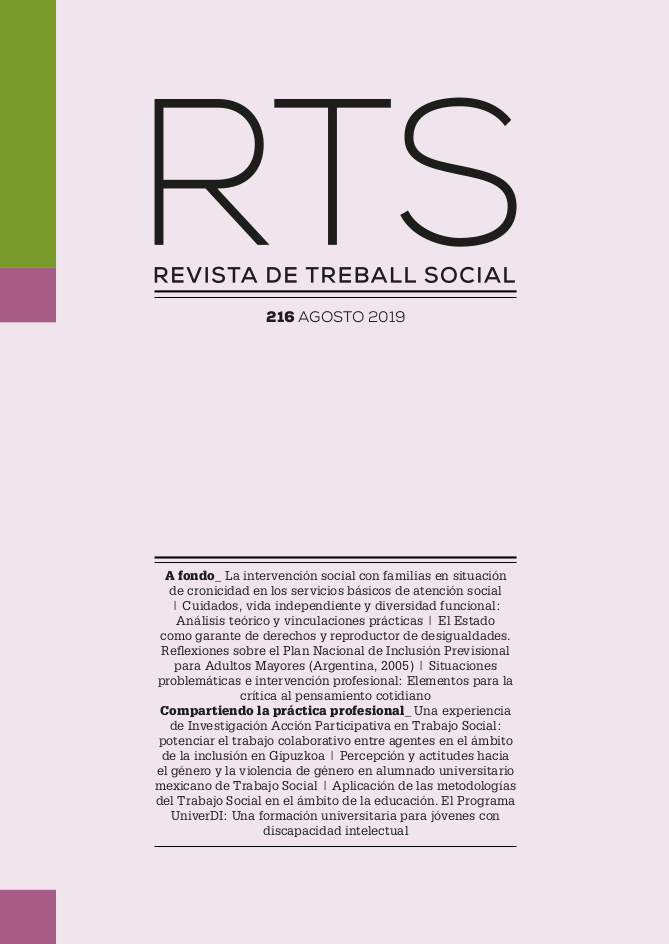In education, social work has been characterized by an incomprehensible absence of a professional figure or, in some cases, by the scant involvement of such a figure. It is unquestionable to debate that the presence of social work in educational systems would not bring countless benefits to the various players involved in the educational community (students, family members, teachers, administrative and service staff, institution, community, and/or engaged public administrations).
The start of social work and the origin of its functions in education have been closely linked to actions for the social integration of students with special educational needs, which would later be legitimized when the profession became incorporated into the structure of members forming Educational Guidance Teams. Although the profession adopts this strategic position, which strives for the inclusion of student diversity, there are still many patent disadvantages for students with disabilities.
This article presents the UniverDI Programme of the University of Jaén, a university education experience in socio-occupational skills for young people with learning disabilities, and it is run by social work professionals. Also, we share professional practice in this educational sphere, which is characterized by using the specific methodologies of social work combined with pedagogical techniques, diversity care models, and strategies to promote inclusive education.





